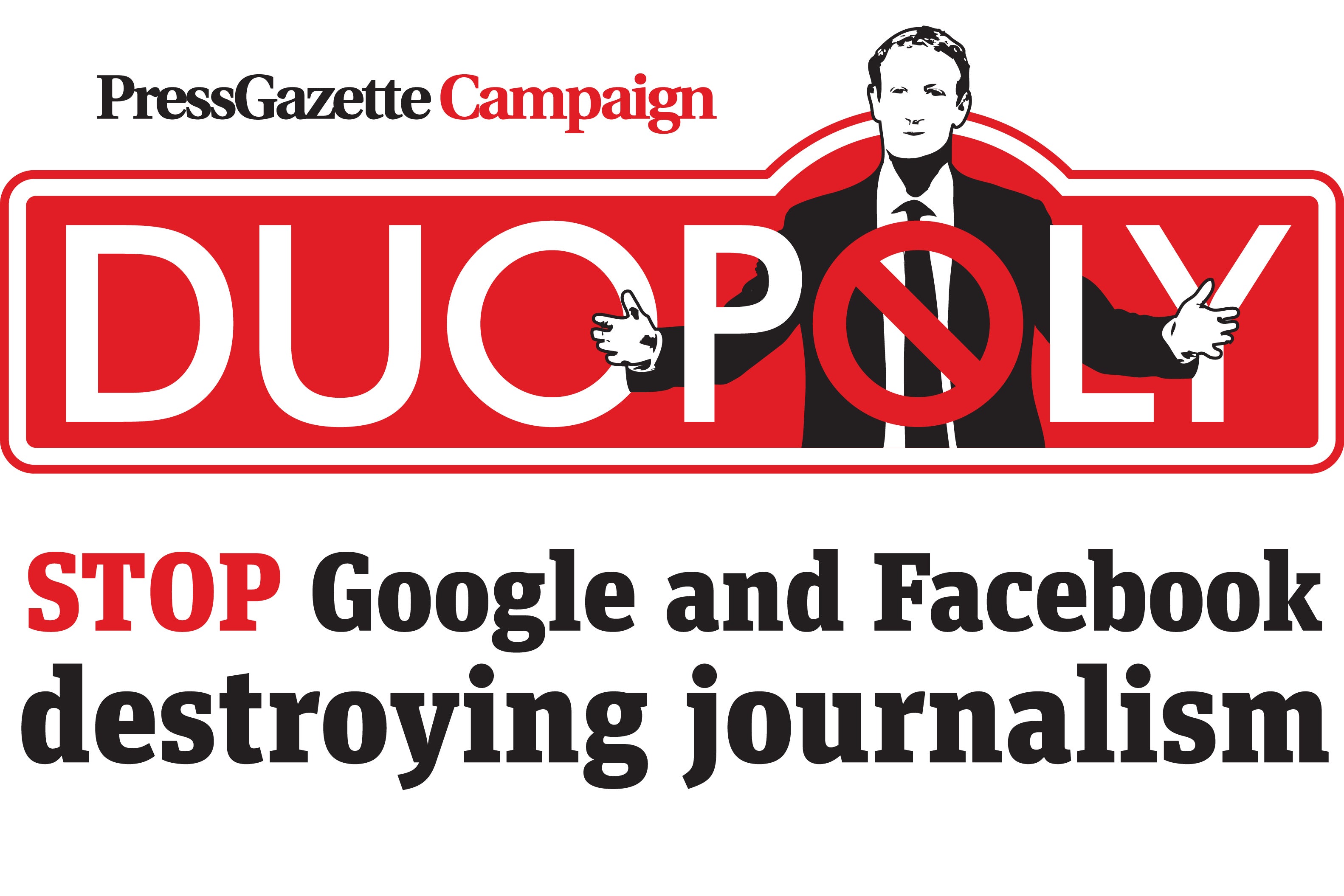
Press Gazette is right to raise the alarm about the dominance of Google and Facebook with its Duopoly campaign.
These two tech titans have now reached such a scale and achieved such a level of influence that there has to be a strong democratic response. The market is not going to diminish the power of these digital behemoths any time soon and, left unchecked, they will become even more dominant – both economically and politically. They have already taken over, as Press Gazette says, much of the distribution of news, along with its revenue, without employing a single journalist.
But, while we need to challenge the duopoly’s dominance, we should not demonise them. The founders of these young companies ought to be taken at their word when they say they want to change the world for the better, and that they want to support news and local communities.
Whether through naivety or myopia, they genuinely appear to be only just realising that as well as empowering individuals, their digital tools can also polarise citizens, fragment communities and undermine the sustainability of news.
Demonising them will not solve the problem of their dominance. Instead, it will give them the justification to adopt a bunker mentality and make them think the news industry is simply bitter about its economic decline and angry about its failure to monetise digital publishing.
At the same time, we shouldn’t expect them to deal the problem of dominance themselves. Mark Zuckerberg made it pretty clear in his – slightly messianic – manifesto in February, that he believes Facebook’s dominance is necessary so it can help solve the world’s problems. He, and other Silicon Valley chiefs, appear to have convinced themselves that the world would run a lot better if only they had more control of it.
As Farhad Manjoo wrote in a brilliant New York Times interview with Zuckerberg earlier this week, the Facebook CEO “is positioning himself – as a critical enabler of the next generation of human society”. This is not a company with limited ambitions.
Nor should news organisations hope that partnering with these giants will solve their problems.
Facebook Instant Articles ought to have taught news organisations that partnering will help the platforms more than the publishers, as well as making publishers uncomfortably reliant on them.
What’s more, who will hold the most powerful corporations in the world to account if the news publishers are working as (very junior) partners with them?
No, if we want to challenge the duopoly, we need to do three things: we need to make them more aware of their power and how it can damage news and civic society; we need to contest their dominance – both through use of (reformed) competition law, and by progressive investments that create a more diverse digital environment and make news more sustainable; and, we have to make the public a lot more conscious of the implications of their own digital actions.
People need to be made aware that clicking and sharing news, whatever it claims and wherever it comes from, just because it fits with their world view, will not lead to global peace and harmony.
Press Gazette should be applauded for rallying a challenge to duopoly dominance. Independent and sustainable news is under even greater threat without a more competitive and diverse tech ecosystem.
Martin Moore is the author of Tech Giants and Civic Power, and director of the Centre for the Study of Media, Communication and Power at King’s College London.
Email pged@pressgazette.co.uk to point out mistakes, provide story tips or send in a letter for publication on our "Letters Page" blog
